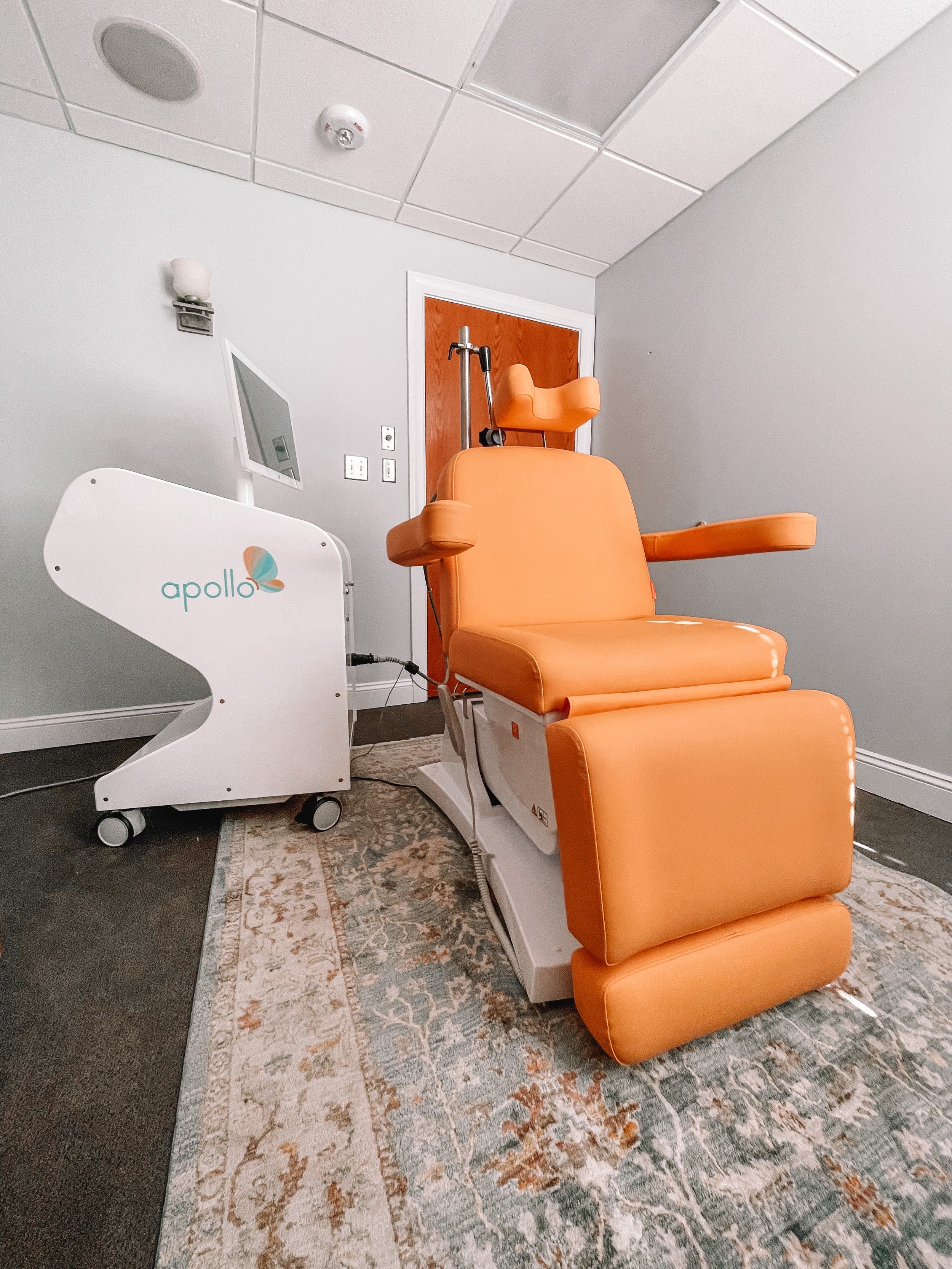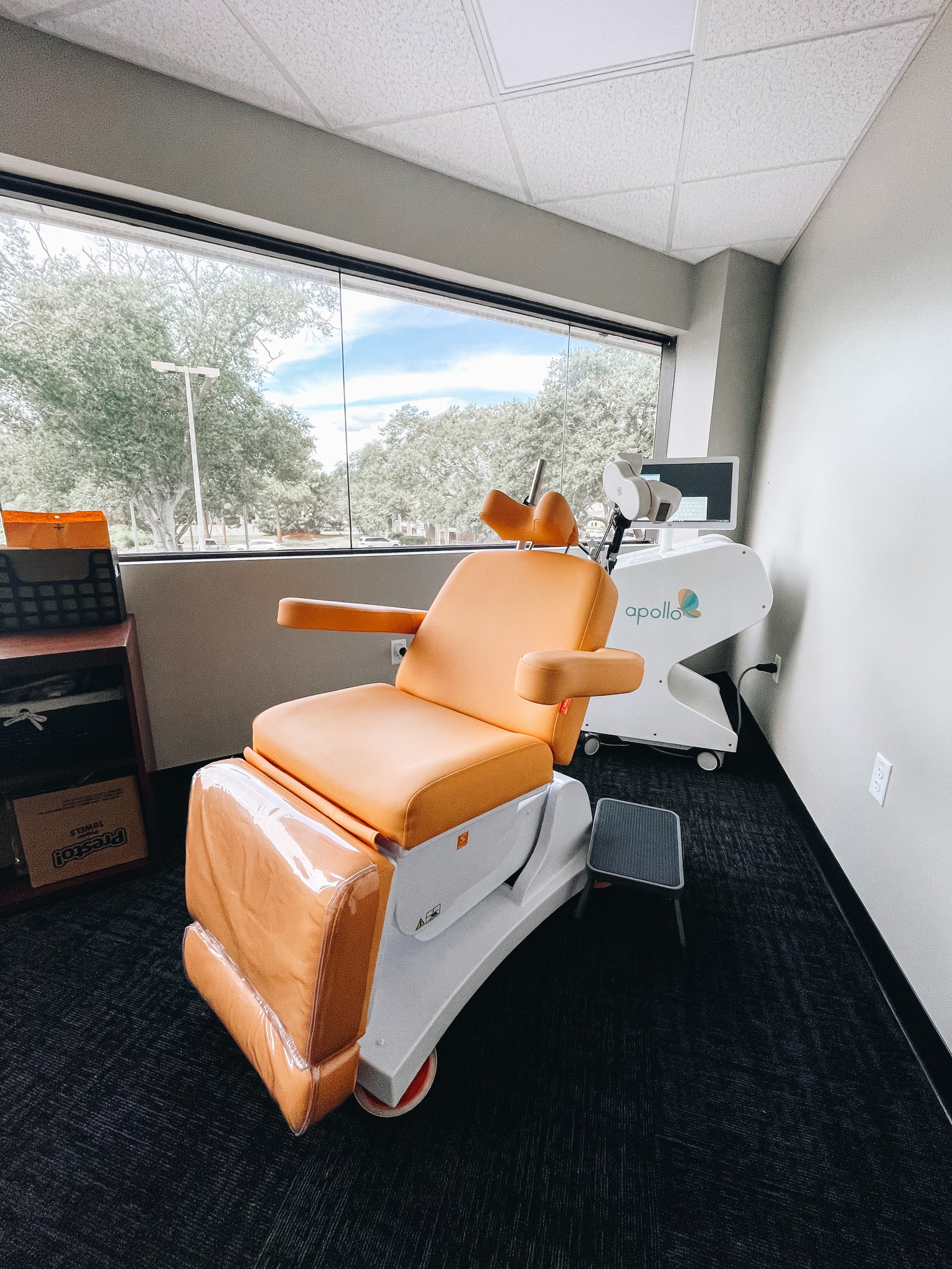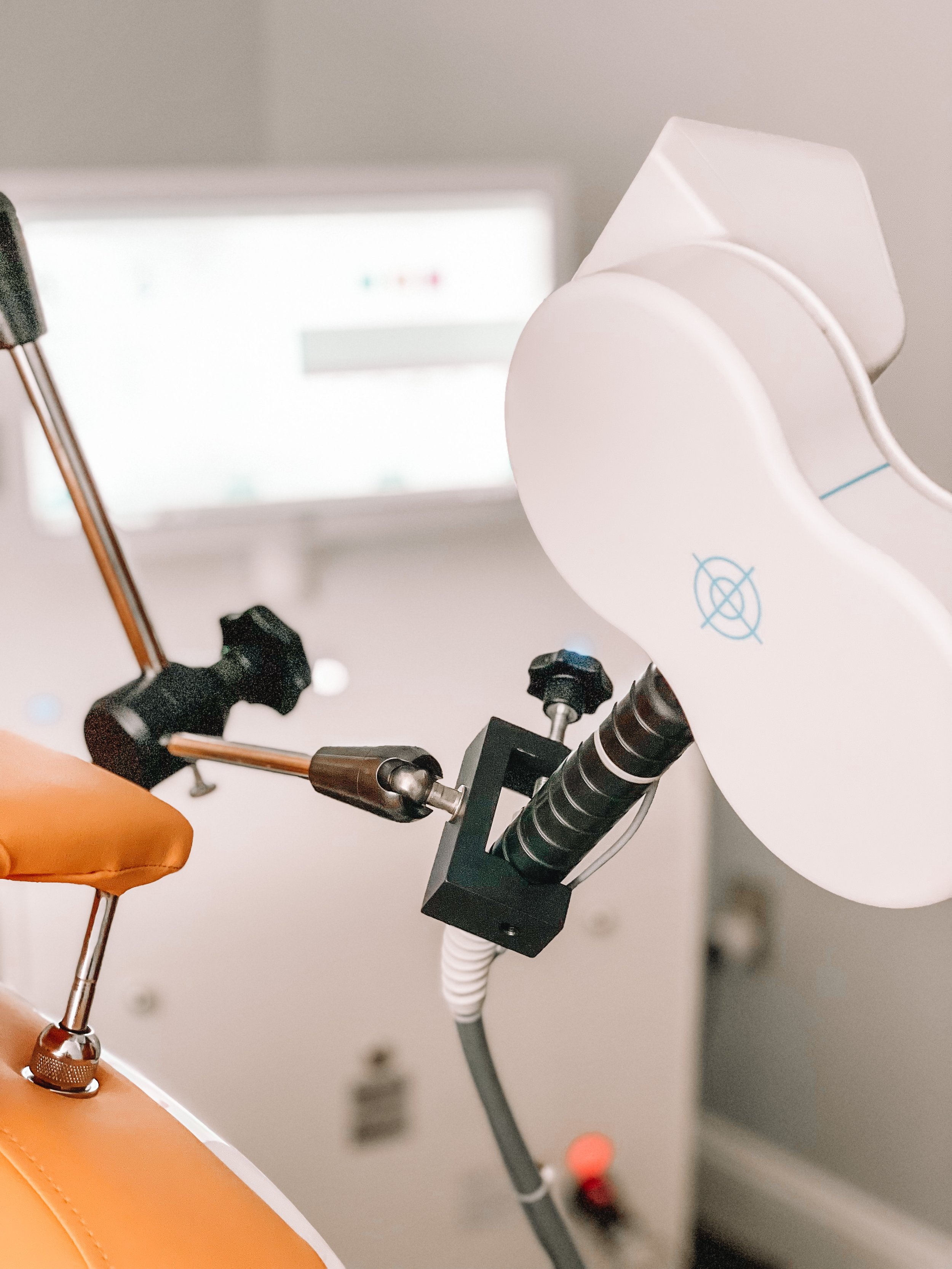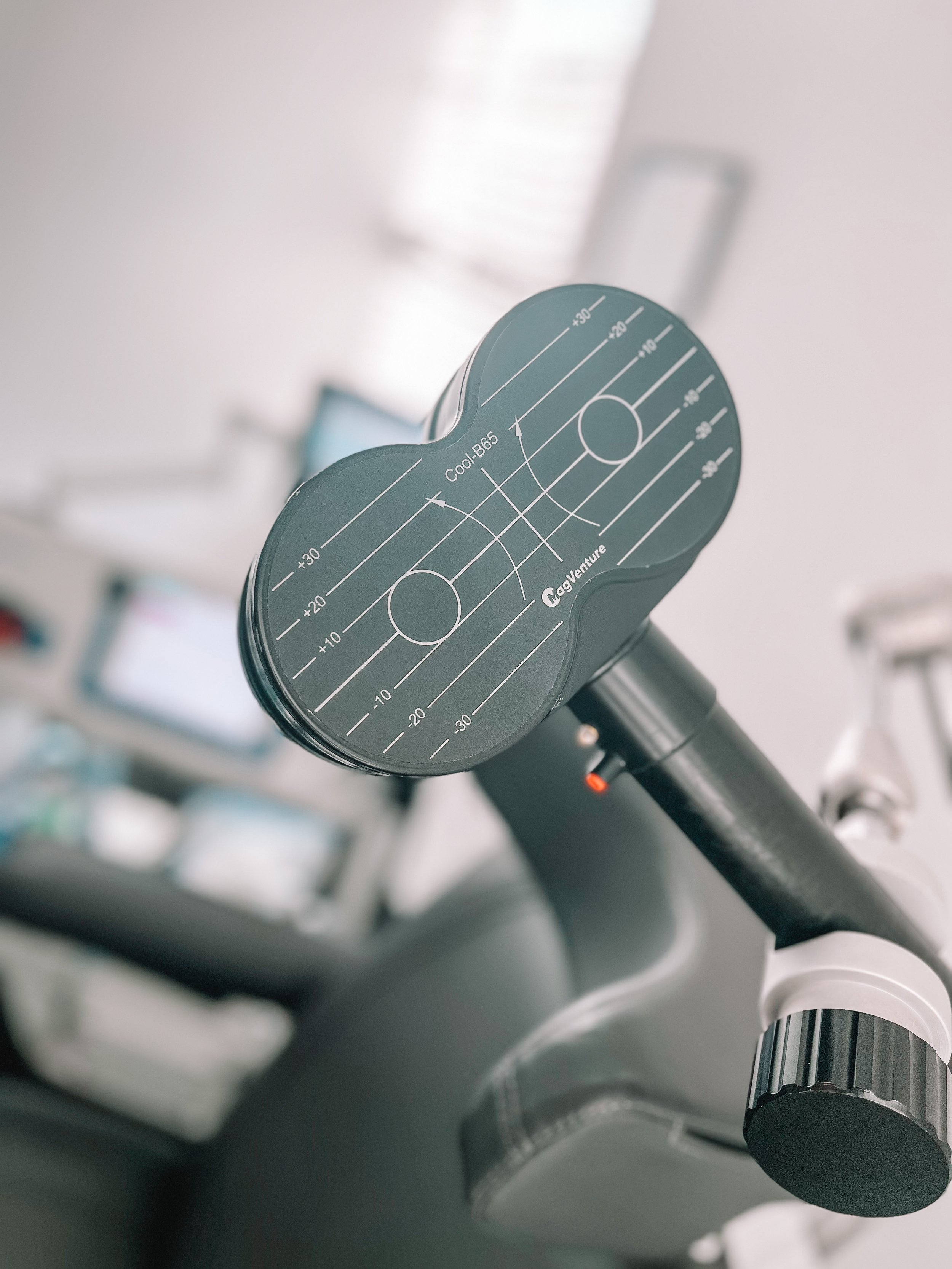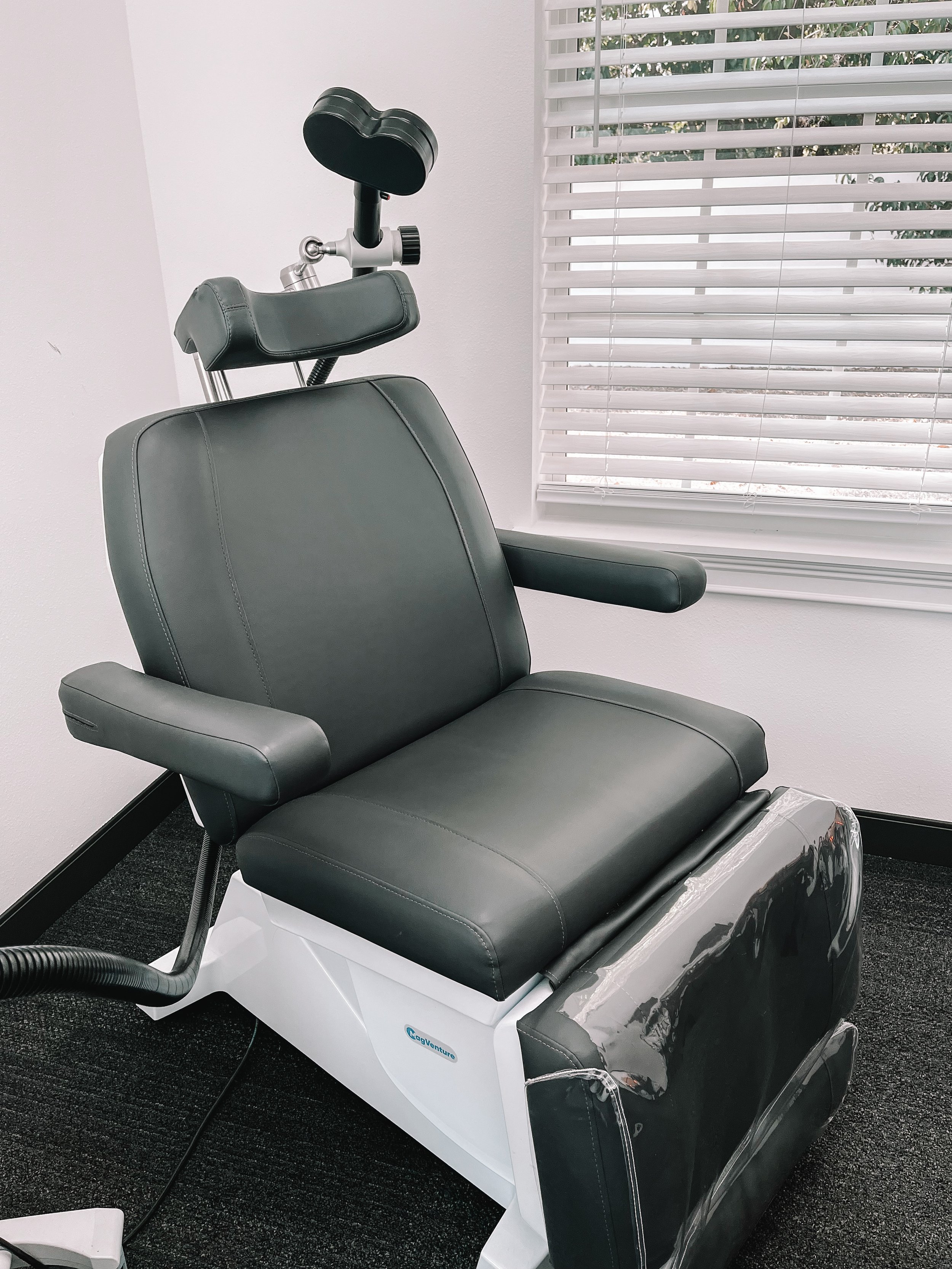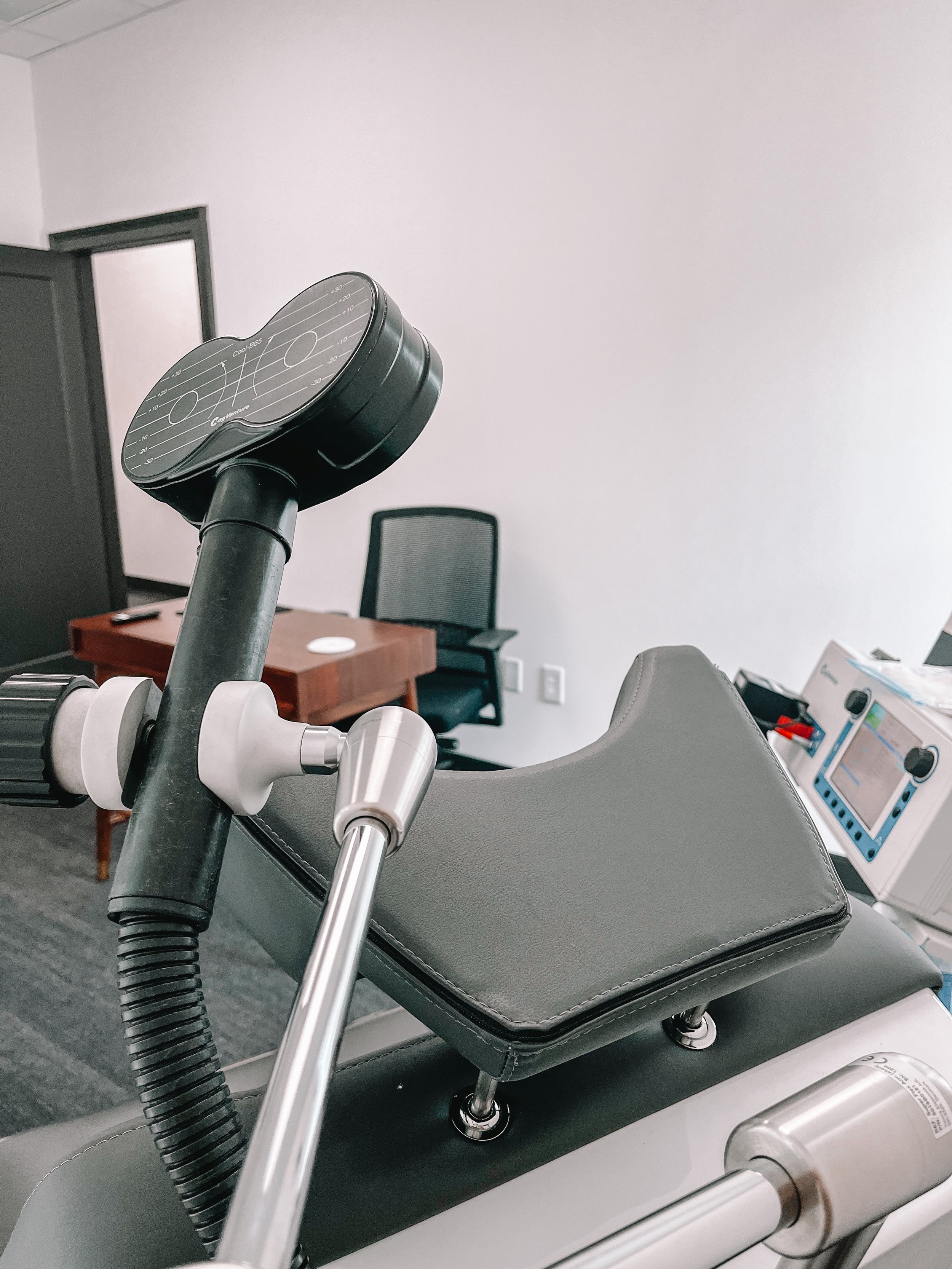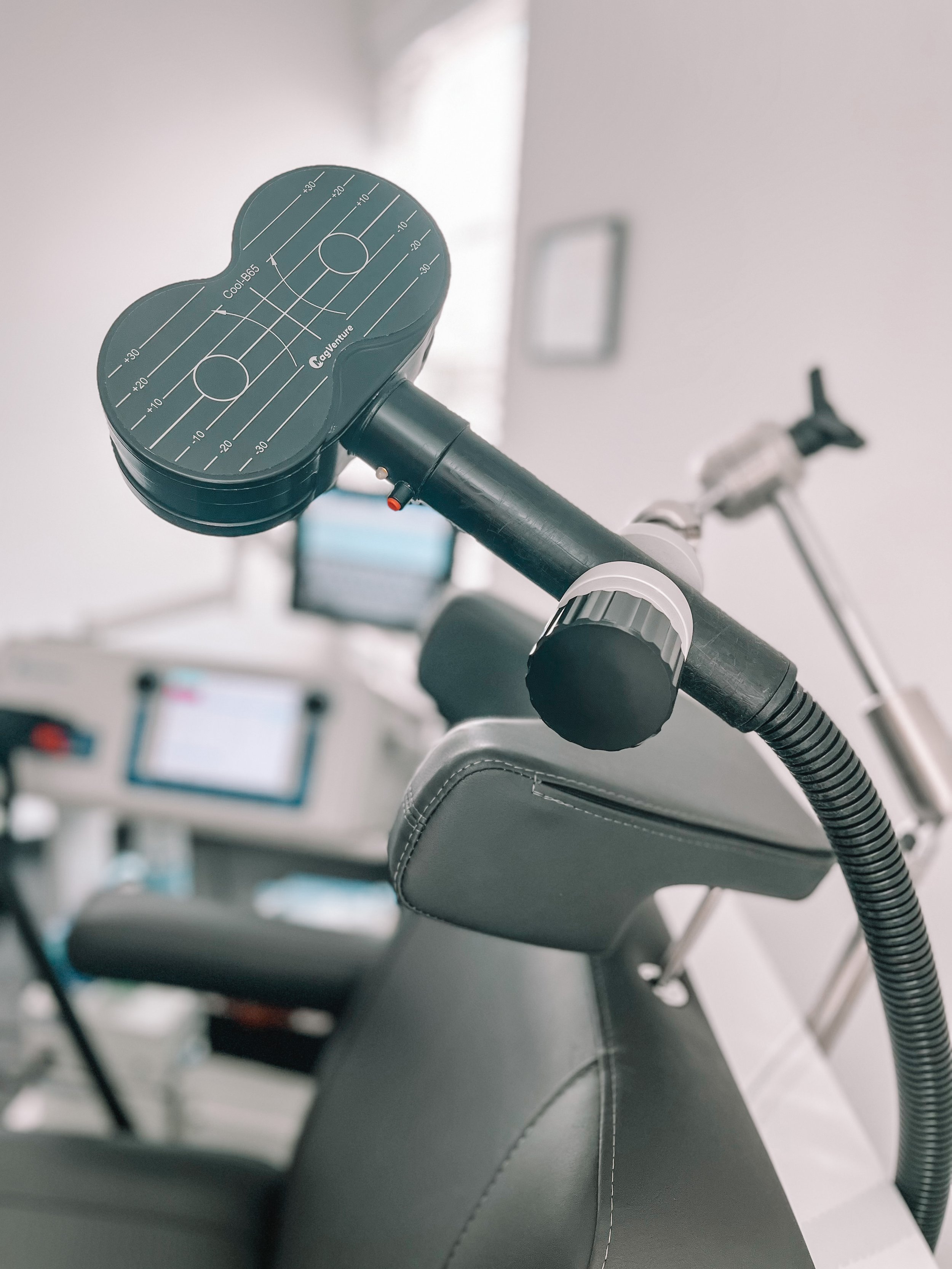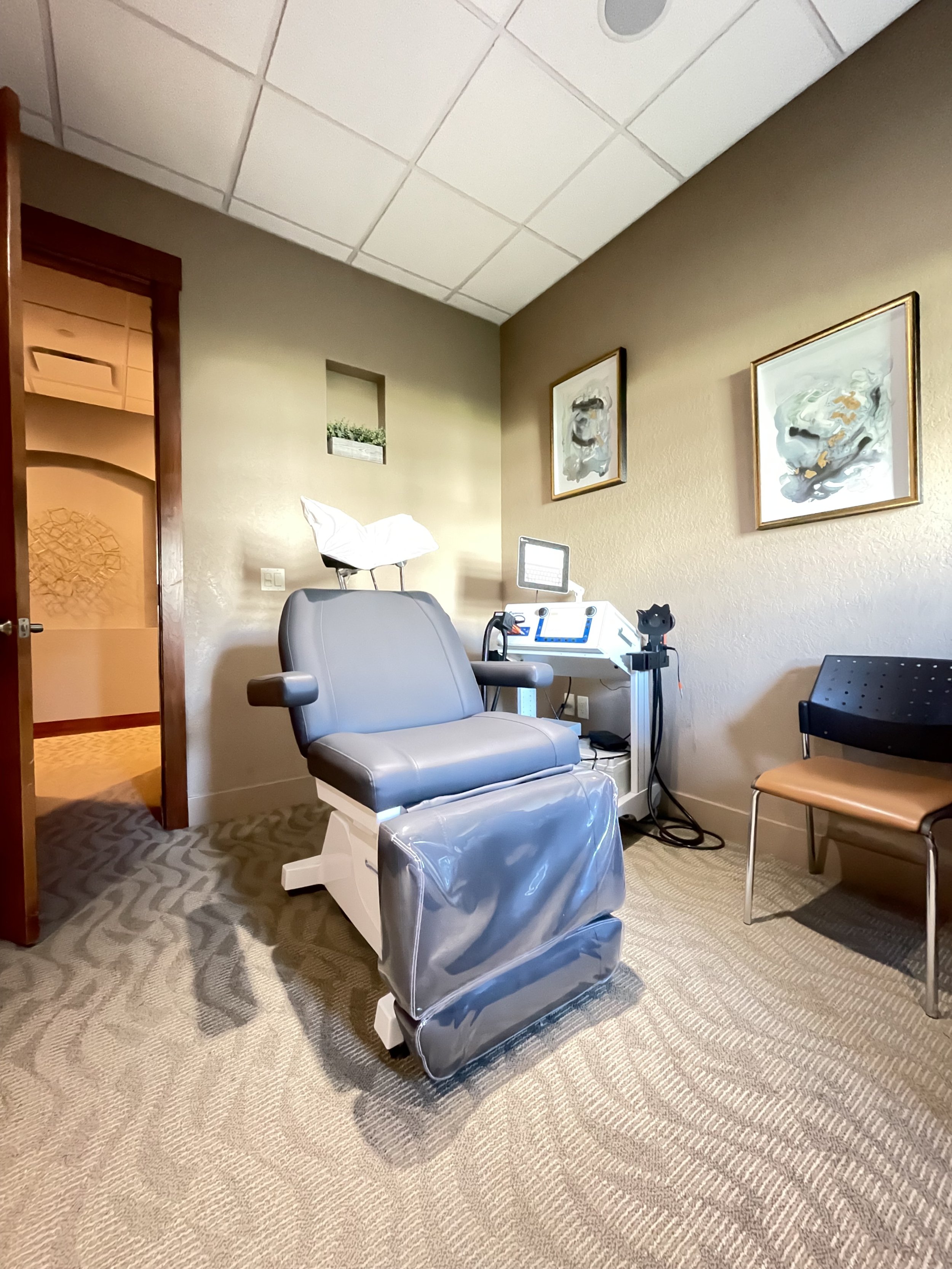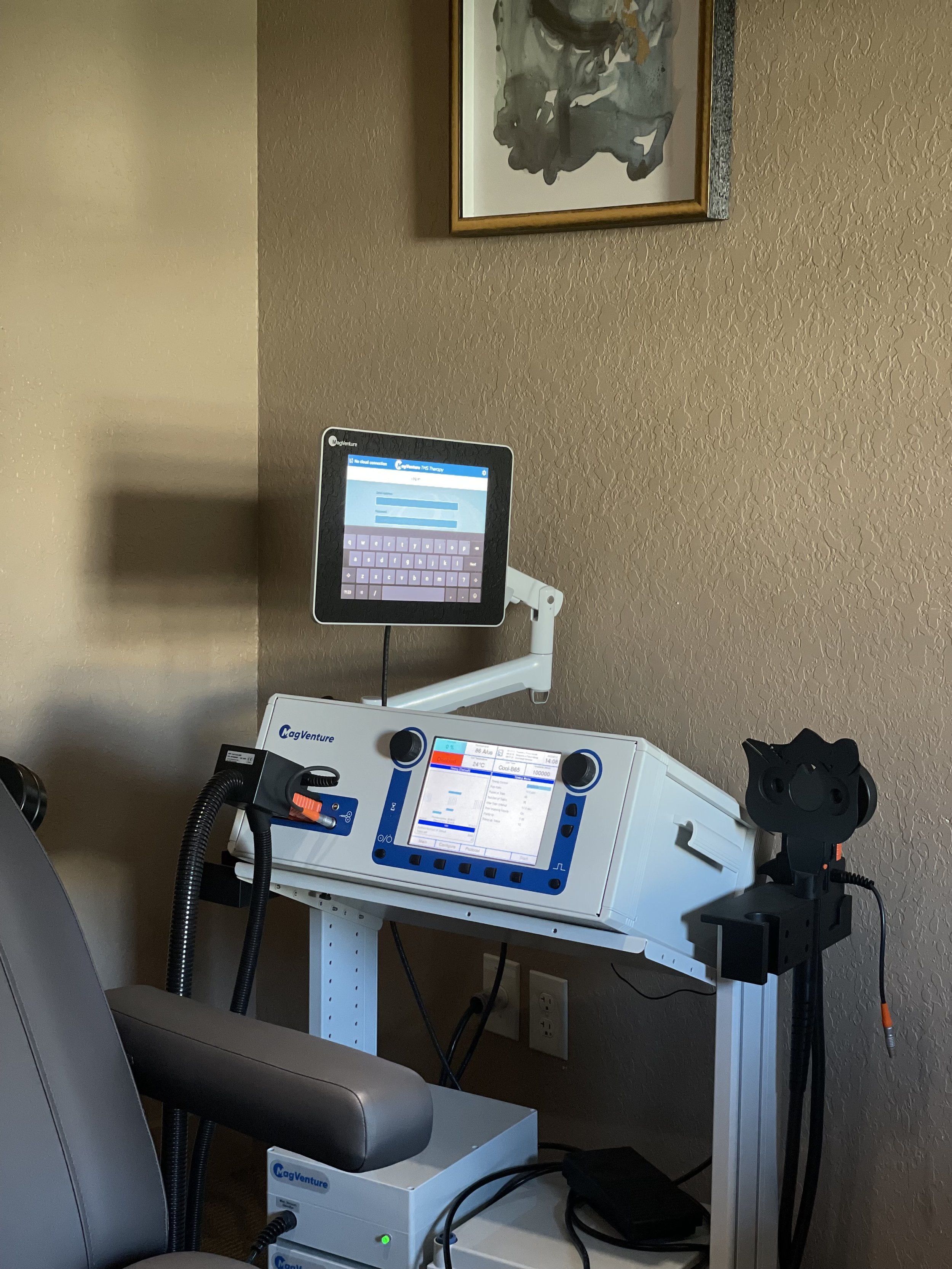CPTR: Many of us in the psychotherapy profession have heard of transcranial magnetic stimulation (TMS), but few seem to know much about it. Can you begin by telling us what it is and how it works?
Esketamine
New Brandon Office
October 27th 2022
I am pleased to announce the opening of our Brandon psychiatry office. Throughout the pandemic, we saw a very high rate of relapse and exacerbations of depression, anxiety, and essentially all psychiatric symptoms. Thankfully, we were able to continue our operations through use of telemedicine (audio/video communication for medical visits). Nearly all major health insurers provided coverage of the use of telemedicine, and some even waived co-pays/co-insurance payments.
We chose to open our second location in Brandon, where there is a shortage of psychiatric practitioners. In fact, the state of Florida is lacking in psychiatrists and this problem is growing year by year.
Our practice model, which includes acceptance of all major health insurance plans, has thrived through two key factors: the passion of our staff and health care providers, and the use of technology to streamline the vast majority of day to day operations. The latter allows us to spend less time on charting, more time with our patients, and facilitates direct communication between patient and provider between visits.
Our expansion includes the addition of transcranial magnetic stimulation (TMS), which is a medical device used to treat depression. It has been a major breakthrough in psychiatry. We have added an expert nurse practitioner, Jean Arroyo, to our roster in both of our offices. I will be seeing patients in our Brandon location, We also added Physician assistant Selly Cruzado .
Depression sufferers who can't take medication can use new technology that improves symptoms
Depression sufferers who can't take medication can use new technology that improves symptoms
By: Wendy Ryan
TAMPA, Fla. — Depression is often treated with medication, but a new technological advancement provides new hope for those who can't take antidepressants.
"It's an FDA-approved treatment for depression. It was approved in 2008. And essentially, it was designed to help people, who didn't get better with antidepressants," explained Dr. Faizi Ahmed is a psychiatrist at Tampa Neuropsychiatry.
He's now performing TMS, or Transcranial Magnetic Stimulation after new research discovered a person who suffers from depression has a brain that looks different than a normal brain.
"There is a decrease in frontal lobe activity and an increase in the deeper brain structures that generate emotion," Ahmed explained.
The technology stimulates that frontal lobe activity with an electromagnetic pulse.
"We get dysfunction of the neural circuits that regulate emotion. So with TMS, we're correcting that problem. We're normalizing those abnormal circuits," Ahmed said.
The schedule can be intensive, with 20-minute sessions, five days a week, for seven weeks in a row. But the treatment is working.
"If you go through the protocol and you have success, the depression is gone. In the next one year, there was about a 30% chance of the depression will come back. 70% chance it won't. Those are good numbers for us," Ahmed explained.
If you're concerned because it sounds invasive, bringing back old memories of "Shock Therapy," Ahmed says it's nothing like that.
In fact, most patients don't feel much at all.
"When you send the magnetic pulse, you're stimulating everything from the skin down to the brain. And the muscles of the scalp can contract. And so people feel that. They can feel some tingling, but you don't necessarily feel what's going on in the brain," he said.
More recently, clinical trials have studied TMS use for other psychiatric disorders, including PTSD, Autism, OCD, ADHD, Nicotine addiction, and anxiety with varying stimulation, depending on the disorder.
"These newer protocols are looking at delivering more pulses with less amplitude so that the strength of the pulse is less, but you're delivering more treatment," he explained.
Like training a muscle, over time, the inactive signals begin firing and reconnecting properly again and eventually, restoring the emotional control center in your brain.
Despite the research still being in its infancy, the new technology gives Ahmed a great deal of optimism.
"In my experience, I've been able to get people off of antidepressants, which you know is preferable," he added.
Transcranial Magnetic Stimulation costs anywhere from $4,000 - $8,000, depending on your insurance coverage.
Medicare and Medicaid cover it as well as other commercial insurance companies. Most will even pay for treatment again if there's a relapse of depression.
New St.Petersburg Office
I am pleased to announce the opening of our downtown St Petersburg psychiatry office. Throughout the pandemic, we saw a very high rate of relapse and exacerbations of depression, anxiety, and essentially all psychiatric symptoms. Thankfully, we were able to continue our operations through use of telemedicine (audio/video communication for medical visits). Nearly all major health insurers provided coverage of the use of telemedicine, and some even waived co-pays/co-insurance payments.
We chose to open our second location in St Petersburg, where there is a shortage of psychiatric practitioners. In fact, the state of Florida is lacking in psychiatrists and this problem is growing year by year. Unfortunately, most outpatient psychiatrists in Pinellas County do not accept health insurance, which makes it even more difficult for people to have psychiatric care.
Our practice model, which includes acceptance of all major health insurance plans, has thrived through two key factors: the passion of our staff and health care providers, and the use of technology to streamline the vast majority of day to day operations. The latter allows us to spend less time on charting, more time with our patients, and facilitates direct communication between patient and provider between visits.
Our expansion includes the addition of transcranial magnetic stimulation (TMS), which is a medical device used to treat depression. It has been a major breakthrough in psychiatry. We have added an expert nurse practitioner, Lindsey Brogdan, who has been in practice since 2014, to our roster in both of our offices. I will also be seeing patients in our St Petersburg location and in Tampa. We are looking to hire another board-certified psychiatrist who will be in St Petersburg full-time.
Recent vaccine developments have been extremely promising. We hope that as society at large can return to work, enjoy socializing, and once again partake in their passions, that the psychiatric consequences of this pandemic will ease. We will continue to see patients remotely via telemedicine and hope to resume normal office conditions in early to mid-2021. We are hoping to continue the use of telemedicine thereafter for folks that find it convenie
TMS (Transcranial Magnetic Stimulation) at Tampa Neuropsychiatry St.Petersburg
This technology was FDA-approved in 2008 to treat people with depression who have not responded to antidepressants. It was an extremely important development in the field of psychiatry for several reasons. The main reason is that depression is difficult to treat in about half of people who develop it. Tampa Neuropsychiatry St. Petersburg will be offering TMS.
Neuropsychiatry
What is neuropsychiatry?
Neuropsychiatry is the field of medicine that studies and manages diseases of the brain that affect emotion, behavior, or cognition. This can mean either managing primary psychiatric disorders like major depressive disorder or bipolar disorder with an emphasis on their biological aspects, or managing emotional, behavioral, or cognitive problems that are very common with primary neurological disorders like parkinson's disease or multiple sclerosis.
One major aspect of neuropsychiatry is the study and management of dementia, which seems to lay at the intersection of psychiatry and neurology. This is a particular interest in neuropsychiatry as symptoms are a clear consequence of specific areas of the brain which are degenerating.
In fact, much of our knowledge of brain function has come from the study of dementias, as specific dementias target specific brain regions.
Who practices neuropsychiatry?
Both psychiatrists and neurologists can practice neuropsychiatry. The term 'neuropsychiatrist' can actually be used by any psychiatrist or neurologist, depending on their scope of practice. A neuropsychiatrist will traditionally spend a significant amount of their practice either studying or treating diseases which involve injury having occurred to the brain. This can mean either traumatic brain injury, stroke, parkinson's disease, multiple sclerosis, Alzheimer's dementia, frontotemporal dementia, and many others.
The United Council of Neurological Subspecialties now requires either psychiatrists or neurologists to complete a one to two year fellowship (training program) in order to qualify for board certification in neuropsychiatry.
How do I find a neuropsychiatrist?
To be blunt, there aren't a lot of us. Most are working at larger hospital systems or university hospitals. Unfortunately, the best way to find someone is to do a google search for your town/city/state. One great resource is the website of the United Council of Neurological Subspecialties, where you can find a list of physicians who are board certified in neuropsychiatry and behavioral neurology. Another resource is your state's Brain Injury Association, which may have a list of physicians that practice neuropsychiatry. Lastly, a neuropsychologist in your town/city will most likely know which psychiatrists or neurologists in your area have this type of expertise.
What is a traumatic brain injury versus concussion?
What is Traumatic Brain Injury (TBI)?
TBI occurs when physical trauma to the head results in injury to the underlying brain. A concussion is a mild severity TBI. As an example, a person who is playing football can hit their head on the field but have no injury to the brain. Although this is a head injury, it is not a TBI. A more severe injury of the same type can injure nerve cells within the brain, which we would call a TBI.
We deduce that injury to nerve cells has occurred if any number of neurological symptoms are present immediately after the injury. This includes confusion, loss of consciousness, or memory impairment. Brain imaging techniques like CT or MRI can be helpful in grading the severity of the injury.
What are the consequences of Traumatic Brain Injury (TBI)?
The symptoms that people commonly encounter include headache, dizziness, poor concentration, fatigue, insomnia, depression, anxiety, and impulsivity. About 80 to 90 percent of mild TBI / concussion symptoms resolve within three months of the injury.
It is common for emotional or behavioral problems (such as depression, anxiety, irritability, impulsivity, apathy) to persist despite the resolution of neurological symptoms (headache, dizziness, visual problems. The emotional and behavioral problems that occur with TBI are the result of disrupted brain circuits. These symptoms can mimic traditional psychiatric disorders like major depression, bipolar disorder, and schizophrenia.
Another major problem that occurs after TBI is cognitive impairment, which we can describe as problems with processing information. There are a number of different ways in which we process information including storing memories, pulling memories from their storage sites, organizing/sequencing/executing tasks, focusing on tasks, and shifting attention from task to task, amongst others.
How do you treat the consequences of Traumatic Brain Injury (TBI)?
As will all neuropsychiatric disturbances, the basis of treatment starts with a diagnosis. An understanding of brain circuits is necessary to understand how TBI can result in certain clusters of either emotional, behavioral, or cognitive symptoms.
In traditional psychiatry, a person who has decreased interest in pursuing their usual activities will be thought to have depression. Whereas, in the absence of other features of clinical depression, a neuropsychiatrist may recognize this to be an apathy syndrome due to a specific area of the brain that has been injured.
Similary, traditional psychiatry may view someone with mood swings and aggression to have bipolar disorder, in the absence of other features of bipolar disorder, a neuropsychiatrist may recognize this to be a dysexecutive syndrome due to certain areas of the brain that have been injured.
It is also important to note that neuropsychiatric symptoms in the context of traumatic brain injuries can result in hormonal imbalances, sleep disorders, seizure activity, or even disturbance of brain areas involving vision.
Cognitive impairment can be difficult to diagnose without formal evaluation and testing. As mentioned for other neuropsychiatric problems, the basis of treatment starts with a diagnosis. Once we know which cognitive domains are impaired, we will know which treatments will be most helpful.
Overall, treatment of TBI is through medication, psychotherapy, rehabilitation psychology, cognitive rehabilitation through speech/language therapy, occupational therapy, physical therapy, and vision therapy.
Depression
What is depression?
There are several criteria that psychiatrists use to make a diagnosis of depression. The most important are when some has depressed, sad, or low mood for the majority of each day and nearly every day of the week. A person with depression also has difficulty feeling joy. Things that used to bring them joy, for example hobbies, or even the small pleasures of every day life like conversations with friends, having a nice breakfast or lunch, no longer do it for them.
When this persists, and is accompanied by a number of other symptoms, for weeks at a time, and interfere with a person's normal daily functioning, we are likely to make a diagnosis of 'major depressive disorder.'
What needs to be made clear is that depression can be debilitating. It is hard to understand without having experienced it, and this is one of the reasons why people tend to keep it to themselves. Depression affects all realms of one's being, from their work life, social life, family life, and even spiritual life. It drains them, and can get to the point where all one sees is hopelessness. It is common for depression to lead to suicidal thoughts or suicide attempts.
What causes depression?
The simple answer is that there are numerous causes. We can break them down into two broad categories: genetic and environmental. Depression, like other psychiatric problems, commonly runs in families, but the majority of cases do not have a strong genetic component. As such, we tend to think of depression as being the consequence of vulnerability factors, like genetic predisposition, and precipitating factors, like stressful life events.
Neuropsychiatry involves the study of brain functioning as it relates to psychiatric disorders. Our view on things is a bit different from the field of psychiatry at large. We tend to see depression as being the consequence of abnormal brain functioning, which has been well documented in scientific studies in which functional brain imaging reveals abnormal brain functioning being alleviated by both biological and psychological therapies.
The question remains, what causes abnormal brain function? A plethora of causes have been found: dysfunctional neural circuitry, hormone imbalances, vitamin deficiencies, traumatic brain injury, stroke, stress response, medication side effect, psychological abnormalities, etc.
How do you treat depression?
Firstly, treatment is only effective if you have a proper evaluation which leads to a diagnosis. As there are numerous causes of depression, there are also numerous treatments. Without a thorough evaluation, depression tends to be reflexively treated with either antidepressants or psychotherapy. Although this can be effective in a large number of cases, it does not help everyone. It is necessary to address all of the factors that are contributing to the depression.
Publications in Peer-Reviewed Journals
Program of Enhanced Psychiatric (PEP) Services for Patients with Brain Injury & Neuropsychiatric Disturbances (NPD): A Proposed
Model of Care
Faizi Ahmed, M.D., Kathleen Bechtold, Ph.D., Gwenn Smith, Ph.D., Durga Roy, M.D., Anita Everett, M.D., Vani Rao, M.D.
Abstract
Neuropsychiatric disturbances associated with brain injury occur frequently and are a common cause of poor quality of life and caregiver burden. These disturbances can disrupt rehabilitation therapies and contribute to functional impairment if they are not appropriately treated. Although some patients can be treated adequately in an outpatient brain injury clinic or rehabilitation clinic, others need a more specialized structured program. Behavioral problems in particular are challenging and often lead to discharge of patients from traditional rehabilitation programs because their behaviors can be disruptive and/or harmful to themselves and others. These patients are often admitted to inpatient general psychiatric units, where they do not receive the comprehensive care they need. In an effort to prevent unnecessary hospitalizations and to provide comprehensive treatment, a community-based, multidisciplinary program was developed to address the physical, cognitive, and psychiatric needs of patients with brain injury. The program is highlighted with two case presentations: (a) a 31-year-old man with severe traumatic brain injury with subsequent cognitive and behavioral symptoms who had improvement in symptoms and quality of life, and (b) a 38-year-old woman with cognitive and mood symptoms after left temporal lobe resection due to medication-refractory epilepsy who had improved mood symptoms and daily life functioning. Brain injury is commonly associated with a host of neuropsychiatric symptoms that wax and wane. There is an urgent need to develop comprehensive programs that can address the multiple needs of this patient population in a community setting.
Faizi Ahmed, M.D., Kathleen Bechtold, Ph.D., Gwenn Smith, Ph.D., Durga Roy, M.D., Anita Everett, M.D., Vani Rao, M.D.. Program of Enhanced Psychiatric Services for Patients With Brain Injury and Neuropsychiatric Disturbances: A Proposed Model of Care." The Journal of Neuropsychiatry and Clinical Neurosciences 28.2 (2016): 147-152.
Neuropsychiatric disturbances associated with traumatic brain injury: a practical approach to evaluation and management
Vani Rao M.D., Vassilis Koliatsos, M.D., Faizi Ahmed M.D., Constantine Lyketsos M.D., Kathleen Kortte, PhD.
Traumatic brain injury (TBI) causes a wide variety of neuropsychiatric disturbances associated with great functional impairments and low quality of life. These disturbances include disorders of mood, behavior, and cognition, and changes in personality. The diagnosis of specific neuropsychiatric disturbances can be difficult because there is significant symptom overlap. Systematic clinical evaluations are necessary to make the diagnosis and formulate a treatment plan that often requires a multipronged approach. Management of TBI-associated neuropsychiatric disorders should always include nonpharmacological interventions, including education, family involvement, supportive and behavioral psychotherapies, and cognitive rehabilitation. Pharmacological treatments include antidepressants, anticonvulsants, antipsychotics, dopaminergic agents, and cholinesterase inhibitors. However, evidence-based treatments are extremely limited, and management relies on clinical empiricism and resemblance of TBI neuropsychiatric symptom profiles with those of idiopathic psychiatric disorders. Although the understanding of TBI-associated neuropsychiatric disorders has improved in the last decade, further research is needed including prospective, longitudinal studies to explore biomarkers that will assist with management and prognosis as well as randomized-controlled studies to validate pharmacological and nonpharmacological treatments. The current review summarizes the available literature in support of a structured, systematic evaluation approach and treatment options as well as recommendations for further research directions.
Vani Rao M.D., Vassilis Koliatsos, M.D., Faizi Ahmed M.D., Constantine Lyketsos M.D., Kathleen Kortte, PhD.Neuropsychiatric Disturbances Associated with Traumatic Brain Injury: A Practical Approach to Evaluation & Management. Seminars in Neurology. 2015 February, 35(1):64-82





